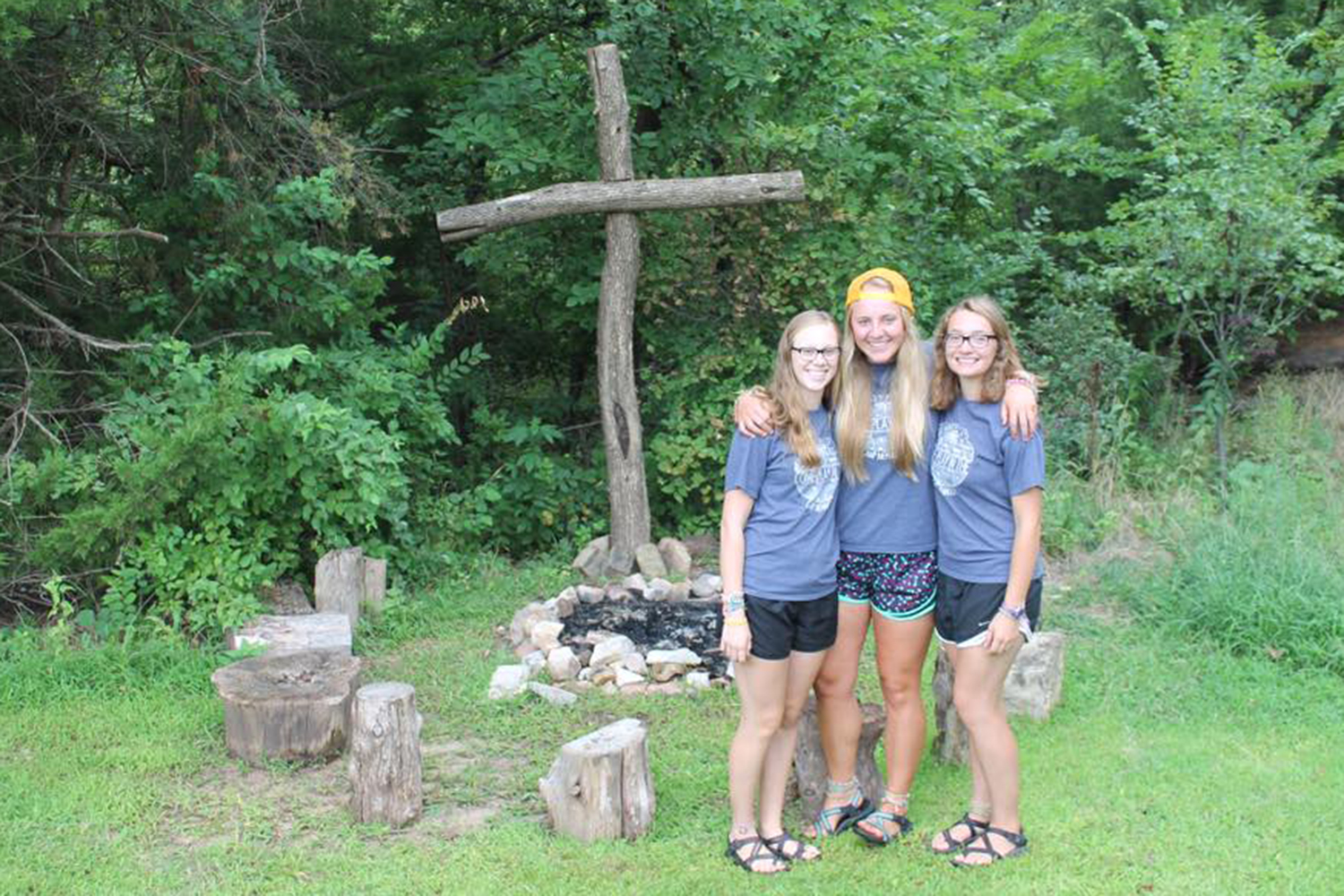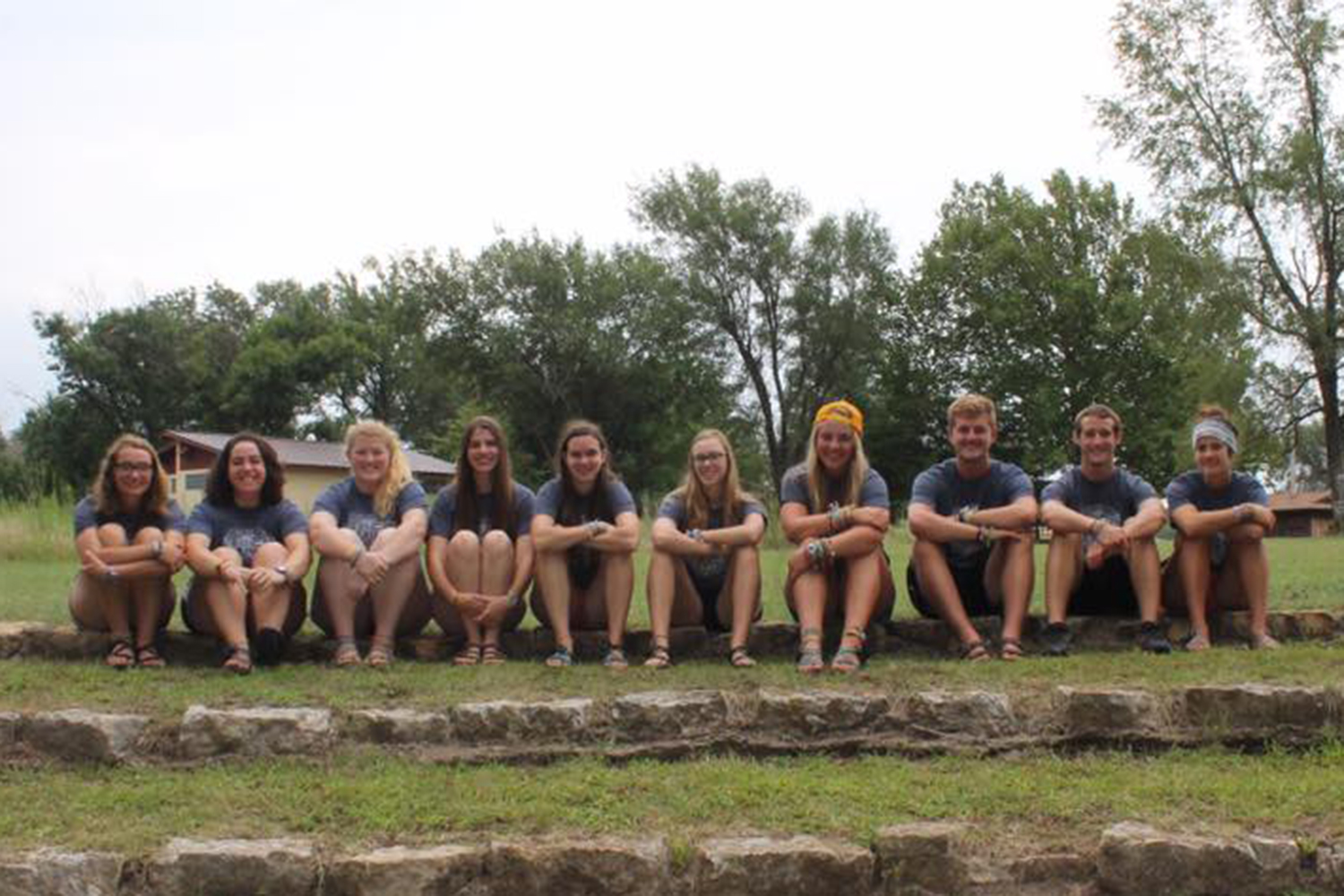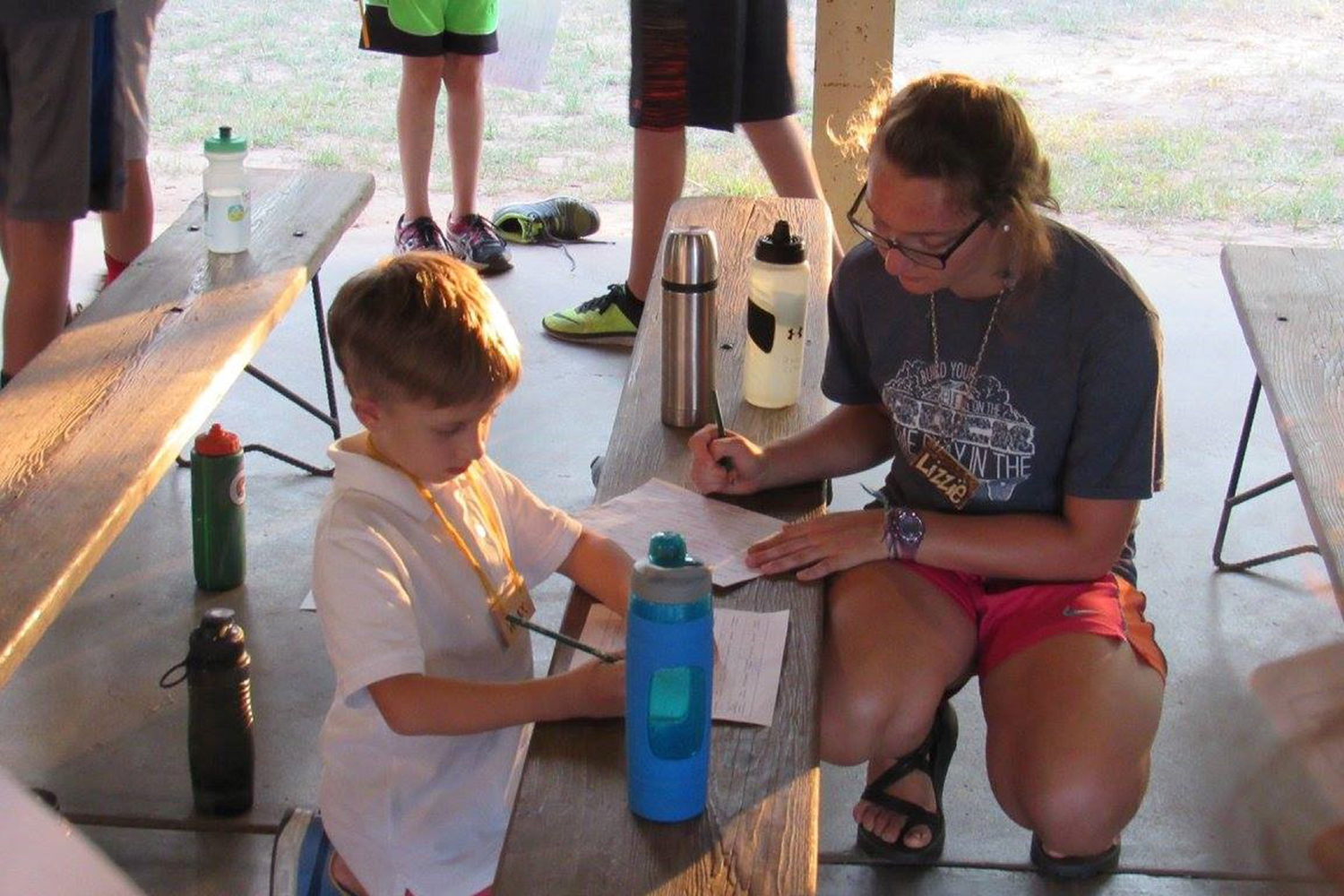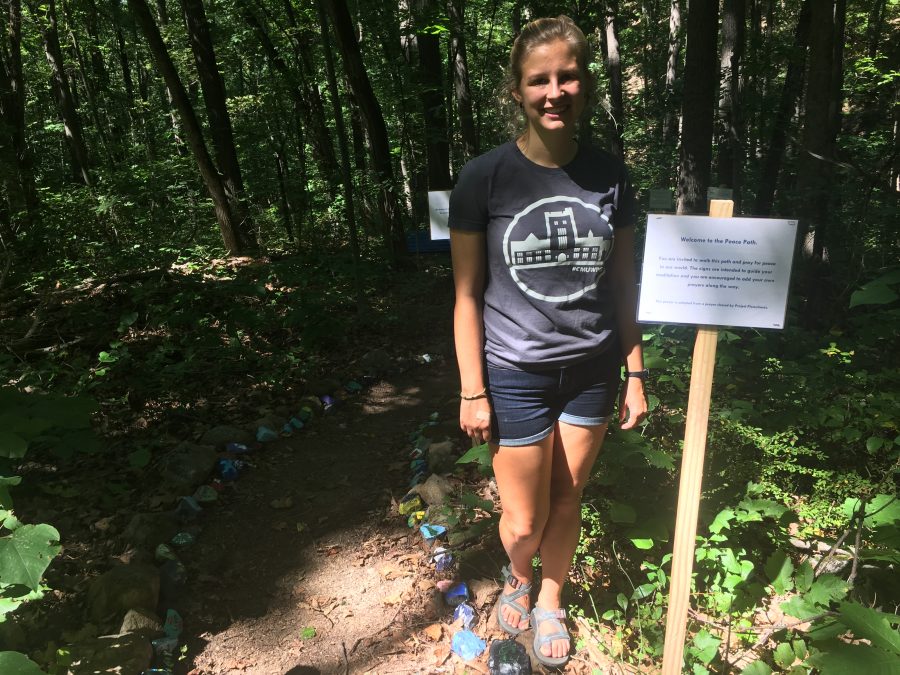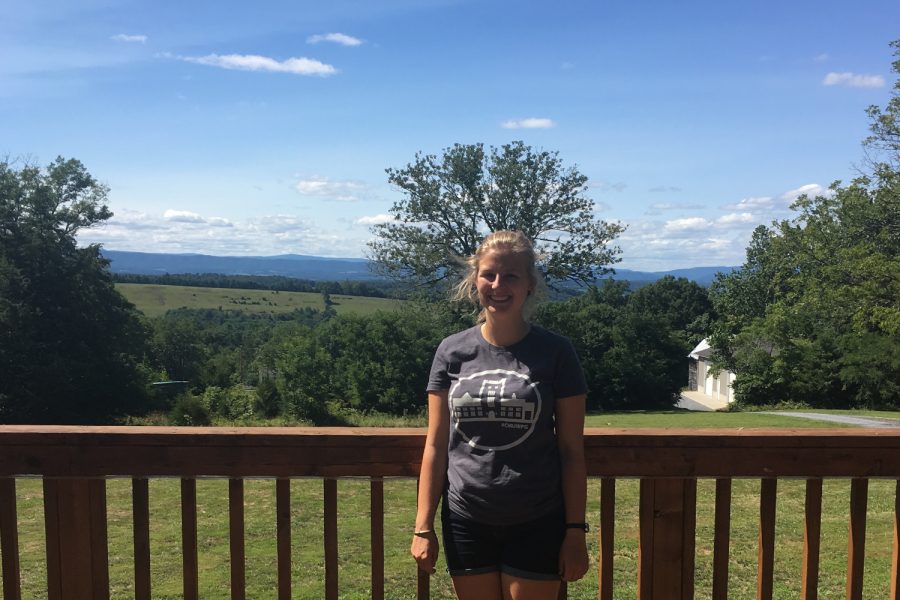Ah, the summers of my childhood. Bike rides to the ice-cream place down the block, afternoons at the local pool, and best of all, summer camp.
For many CMU students, summer camp isn’t only a memory of summers past, it’s an everyday summer adventure as they make up the staff of camps far and wide! I interviewed two summer camp staffers (Marnie Klassen and Johanna Klassen) who recently worked with Camps With Meaning. We talked about past camp experiences, the word “average”, and how their CMU and camp experiences flow into one another.
_________________________________________________
Hey friends! Tell me a little about yourselves and your camp/CMU roles.
Johanna: My name is Johanna Klassen. I’m 19, and I worked as a Senior Counsellor this summer, at both Camp Assiniboia and Camp Koinonia. I’m currently in my second year of music studies at CMU, with the goal to pursue education.
Marnie: My name is Marnie Klassen. I’m in my 4th year at CMU, and spent the summer as the Bible Instructor at Camp Assiniboia, one of Mennonite Church Manitoba’s two summer camps. I’m studying Social Theology.
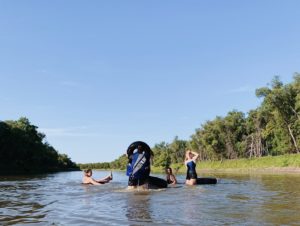
Did you go to summer camp as a child? Did that influence your decision to work at camp at all?
Johanna: Growing up I went to Camps with Meaning from as early an age as possible. I went to Camp Assiniboia when I was a younger child, and as got older I began going to Camp Koinonia because I wanted a camp experience that included more camping experiences, including canoe trips out on Max Lake and beyond.
Marnie: I only started going to camp as a pre-teen. At that time, my older siblings were both camp staff and my mom was on the board of the camp we were involved with, so in some ways I was more of a staff kid than just a camper. The sense of ebbing and flowing community really struck me and I was hooked. I knew I wanted to be part of something that combined hilarity with a deep sense of belonging and mission.
Why did you decide to work at camp?
Johanna: The main reason I began working at camp was because of the wonderful, inspiring, faith-forming weeks I had as a camper, and I wanted to make that a reality for youth in the future. I was encouraged by my counsellors the year before I could volunteer in the Day Camp Program at Camp Assiniboia, and I had a multitude of friends that also were planning to work at camp—I knew it would be a fun way to spend the summer! Now my friends have grown into a supportive community which has been shaped at camp, and I am lucky to be a part of it not only during the summer but also throughout the year, which is a big reason why I keep going back.
Marnie: This summer I ended up at Camp Assiniboia largely because I wanted to laugh more. As with most people my age, I’m learning a lot about myself and the world and came to a point where I realized I needed to take myself less seriously. So I went to camp to laugh more!
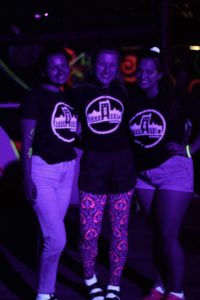
Tell me a bit about an average day at camp.
Johanna: I don’t believe I had an ‘average day’ this summer, as I worked only one week with each age, every week with a different schedule. But, usually: I attend morning prayer, sit down to eat at least five times throughout the day, sometimes cook supper at campout, sleep outside under the stars, song-lead during Bible time, lead Camp Skills (including fire-building and natural tea making), run around with kiddos, and swap stories about God with campers and staff alike in the evening.
Marnie: A day in my role this summer could be compared to an obstacle course. You think you know what’s coming, there’s a ton of variety, and inevitably you end up being surprised by something. We started the day with morning prayer, breakfast, and staff meeting/devos, before Bible, which was my biggest part of the day. I was teaching about Community, based on Colossians 3:12-14, and we did tons of fun activities. Afternoons looked like filling in wherever needed, making sure that program was running and staff were getting their time off. In the evenings I facilitated Fireside, a time of worship and faith story sharing. I usually finished off the night either with some office work or a leadership meeting. Long, fulfilling days.
Wow! I definitely shouldn’t have used the word “average”. So what motivates you to work in such a high-energy environment all summer?
Johanna: Knowing that even though it doesn’t always feel like it, what I’m doing has a positive impact on someone. I know this because I experience it every day at camp myself, this coming from someone else. Spending quality time with people who raise important questions, are not afraid to be silly, willing to listen. Understanding the beauty of creation and community so well that I can feel it in my bones.
Marnie: It’s a wonderful thing to be part of faith embodiment. Every conversation is a chance to honor someone’s story or encourage someone. Yes, it’s exhausting. But it also matters. The energy of the staff and the delight of the campers is very fueling.
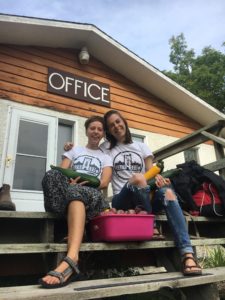
Did you see any of your CMU classes, learning, or experiences come into play while you worked at camp?
Johanna: More generally, my first year at CMU taught me to ask questions, and to be resilient in the midst of stress and confusion. More specifically, in the spring I had a camper who was quite anxious, and stuck to one staff member throughout the day. She wanted to sing in the talent show, but was nervous about where she would stand, what it would be like and the music itself. I suggested we practice, and because I had taken Music Skills, I was able to accompany the camp songs on piano more easily and sing with her. This made me feel like I could do something to ease her anxiety, and CMU gave me some of those tools.
Marnie: I certainly drew on my learning from Pastoral Care and Counseling as I spent a lot of time this summer in conversation with younger staff, helping them make sense of their stories. It was a huge honor to be trusted with those stories, and I think I was able to do that in part because of that class, as well as others that have touched on things like narrative theology.
Are there any stories or moments that immediately come to mind when you think about this summer?
Johanna: Every time I try to think of a moment to share, this one always pops up in my mind: one camper really stood out to me this year made me laugh more than any other, and also asked me the most thought-provoking questions. One evening before bed in a cabin full of seven-year-olds, she was sitting on her bunk, engrossed in the task of quietly putting on bug spray and sunscreen. When asked why? she replied, “I just like to.” I kept coming back to this situation realizing that sometimes, we do things even though they don’t make sense, just because we like to. And every time I think about it, I earnestly laugh out loud. On our walk in the forest to our campsite, she held my hand and asked, “why do the mosquitoes have such a nice home?” in moments of chaos and quiet, she was able to put a smile on my face, and remind me how much wonder is in the world.
Marnie: This summer was my first time working with adults with disabilities, and I learned oh so much. I learned about grace and communication and kindness and absurd and hopeful laughter and love. I will never forget listening to Roam by the B-52’s seven times and dancing with one camper as she prepared to go to bed. I’ve seldom known grace in such a way as that.
These stories are so wonderful and heartwarming. Thank you two for sharing your stories and experiences with me!
Chloe Friesen, 3rd-year Communications and Media student


